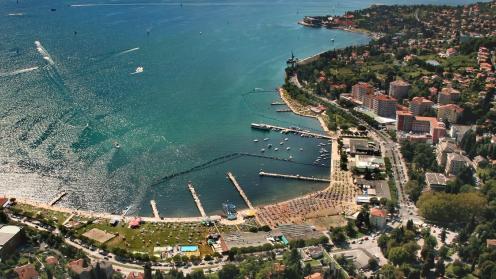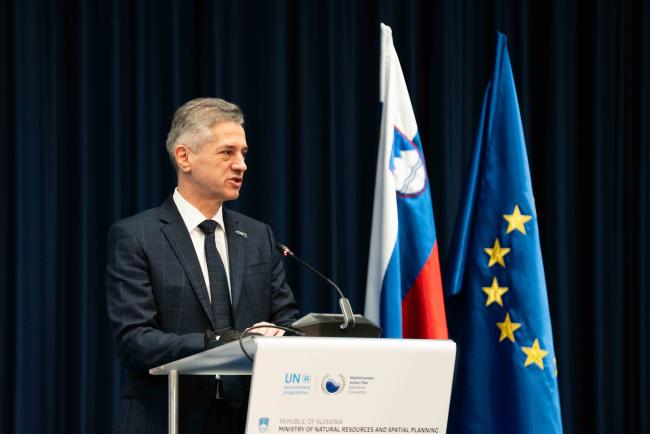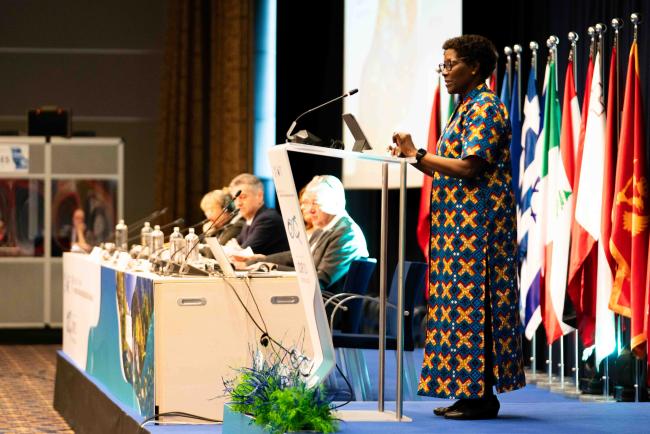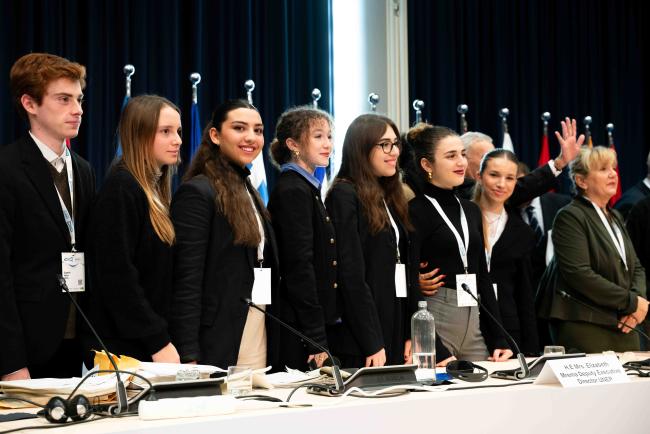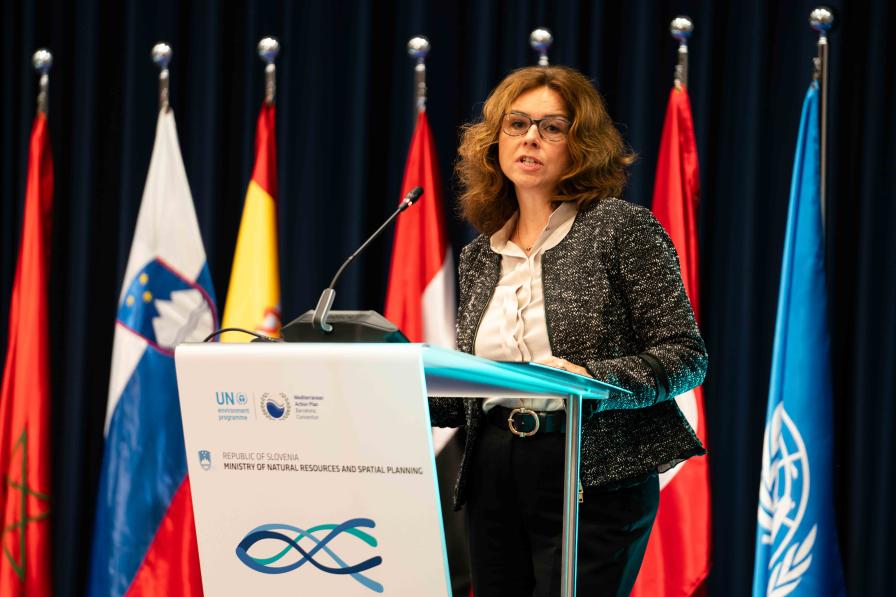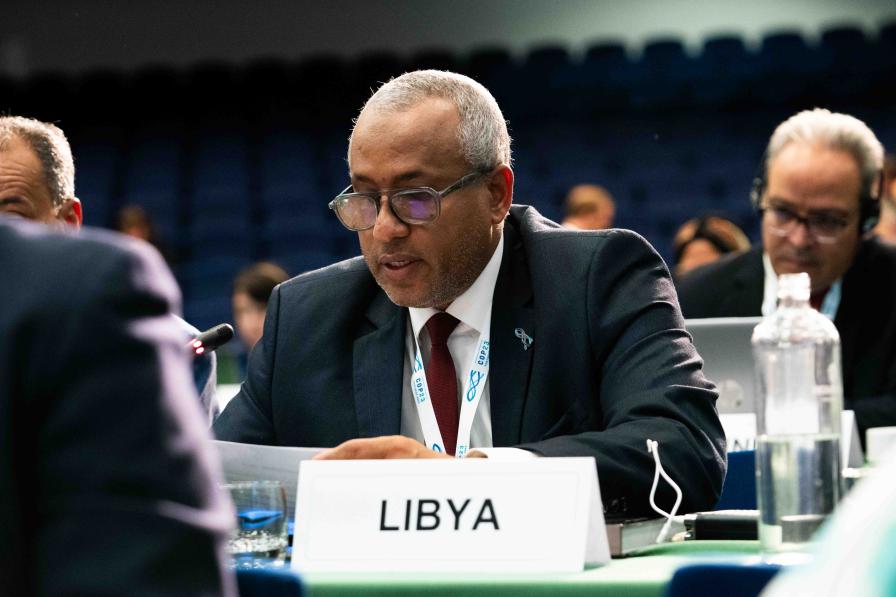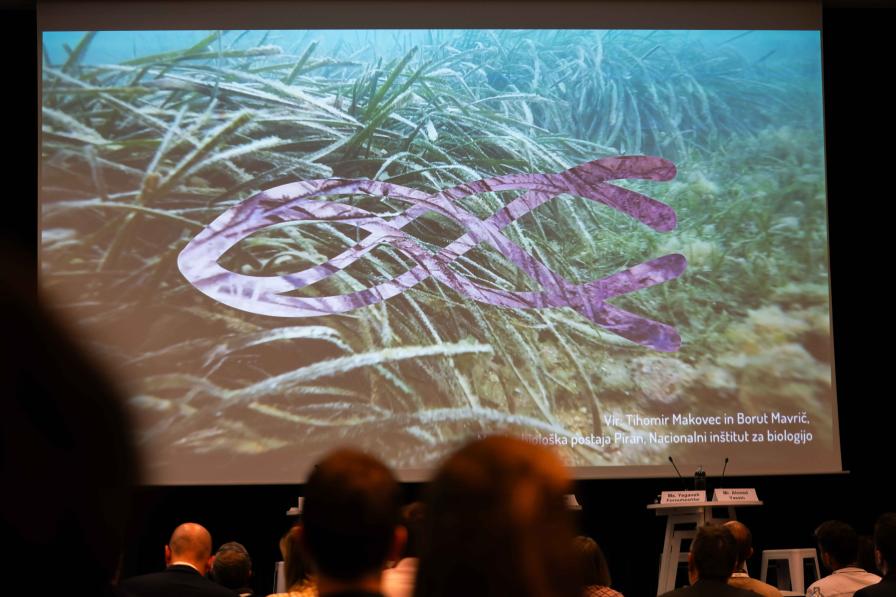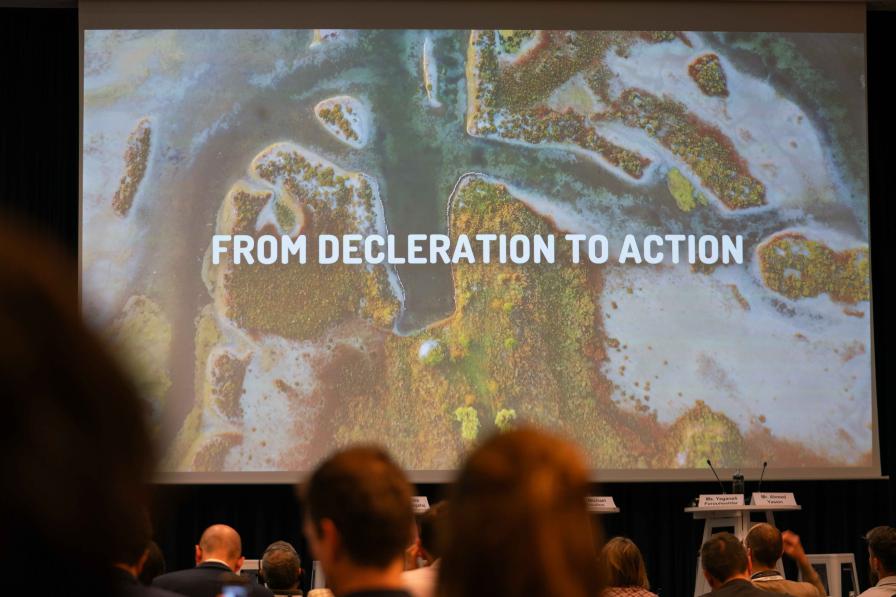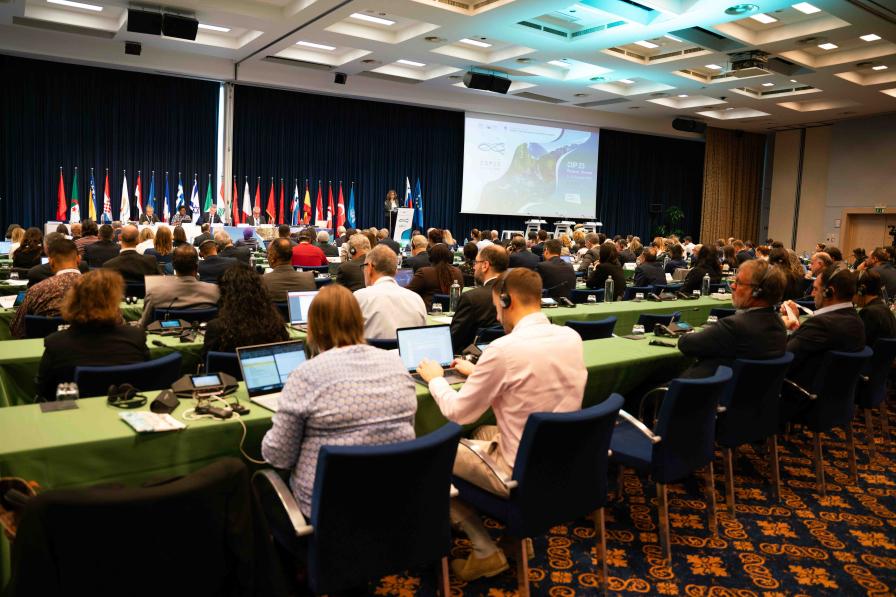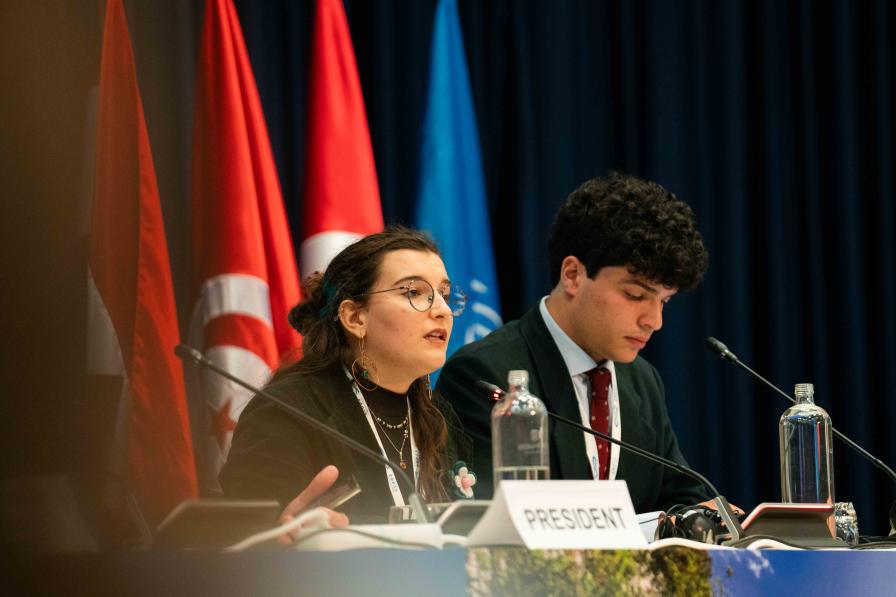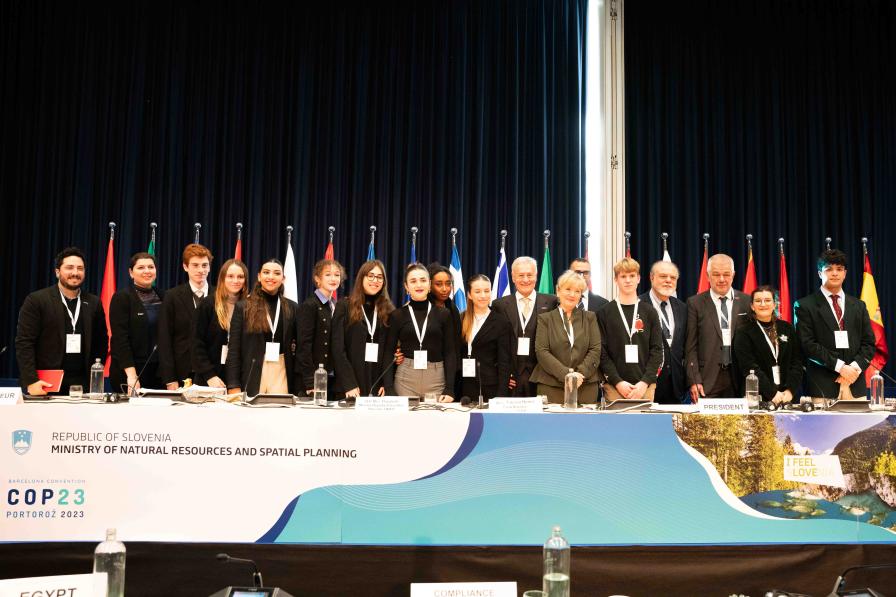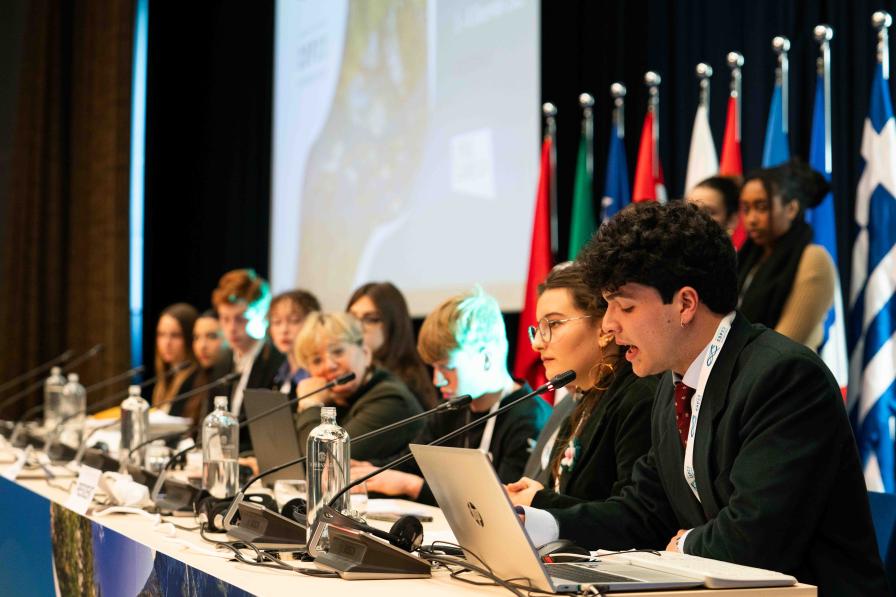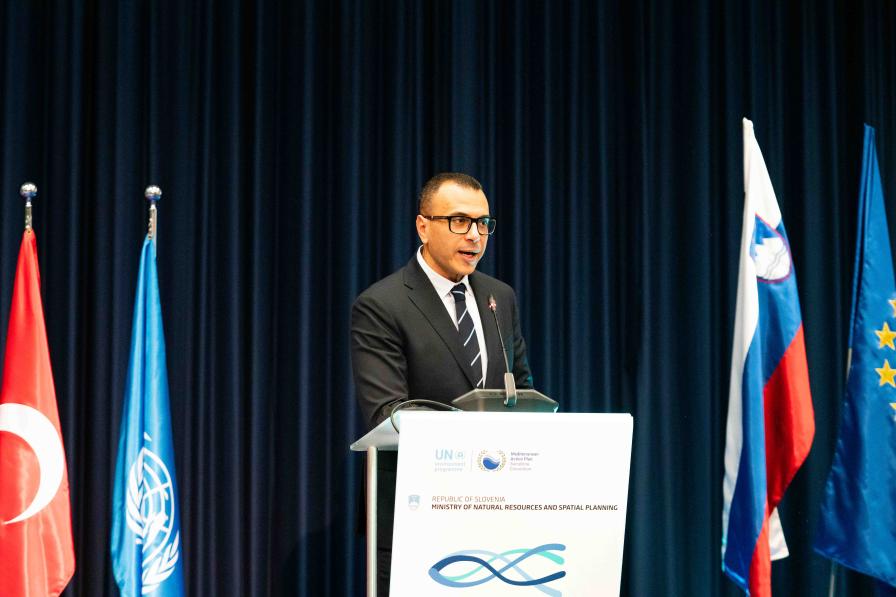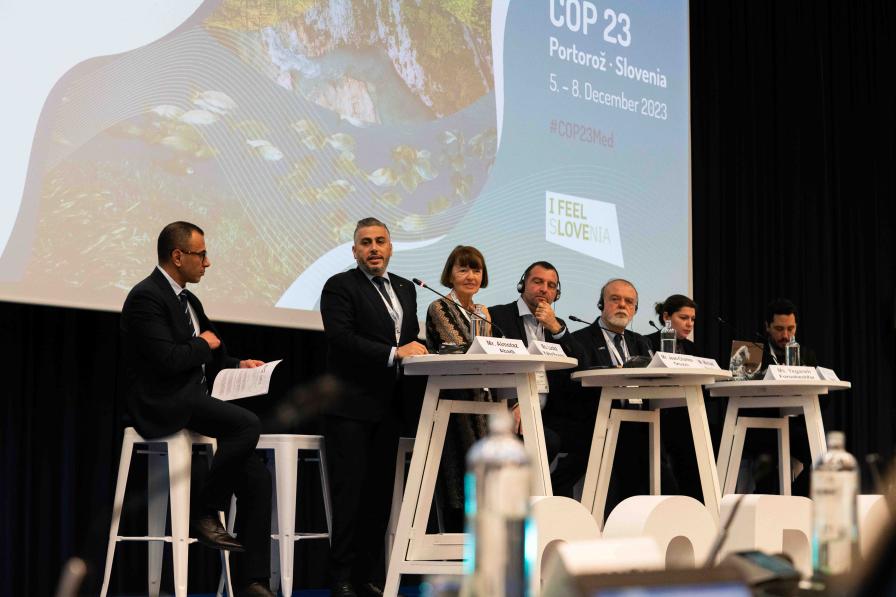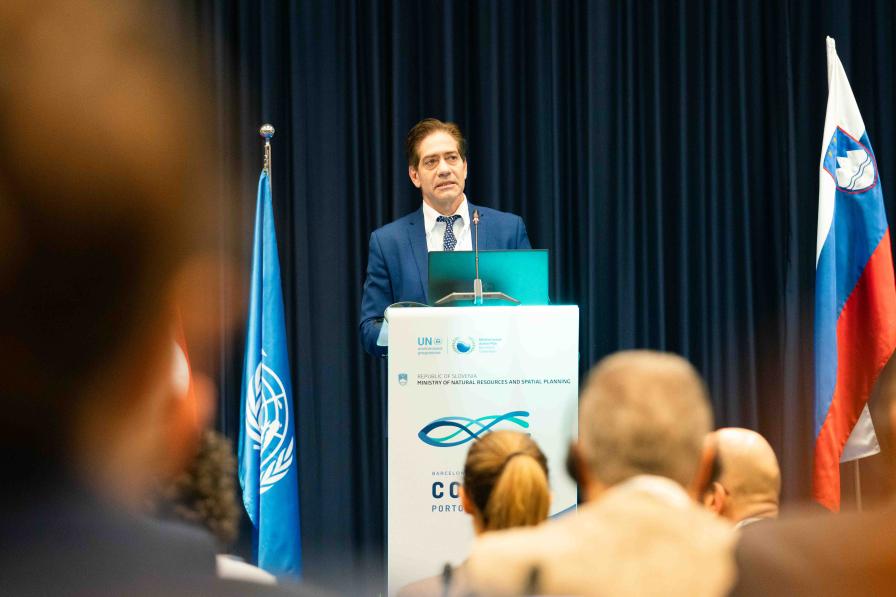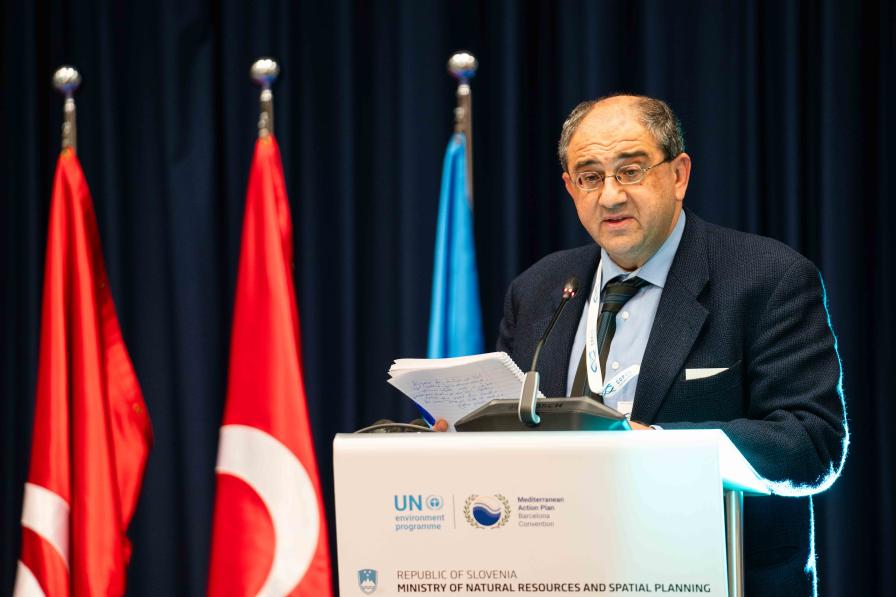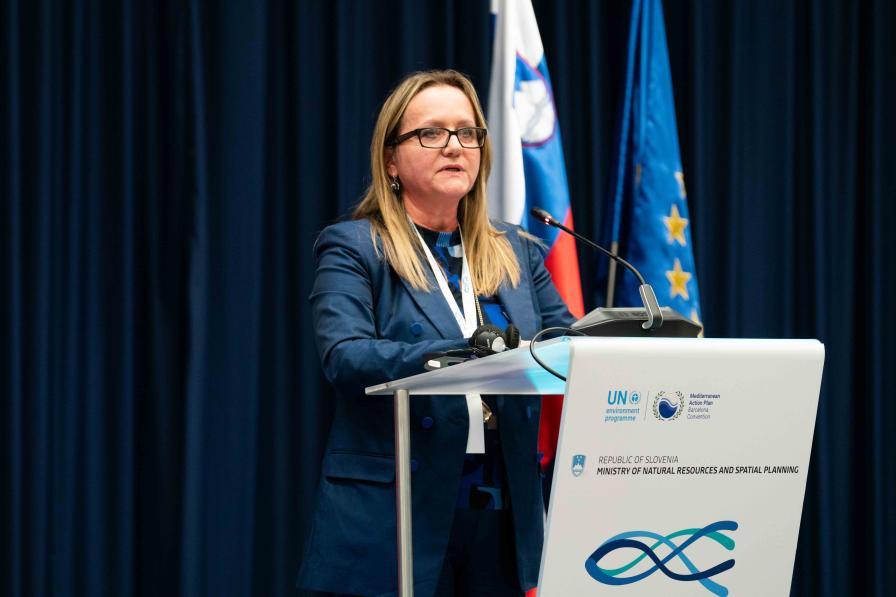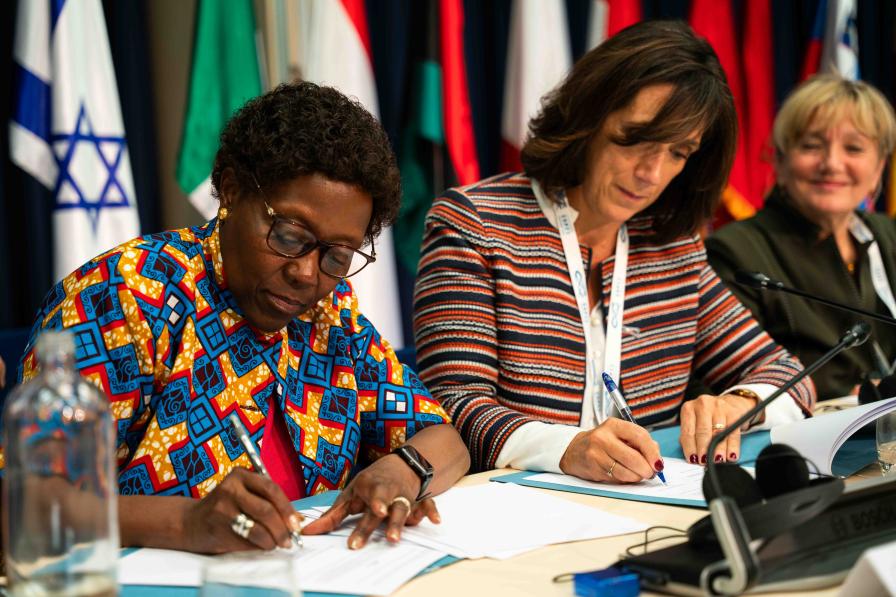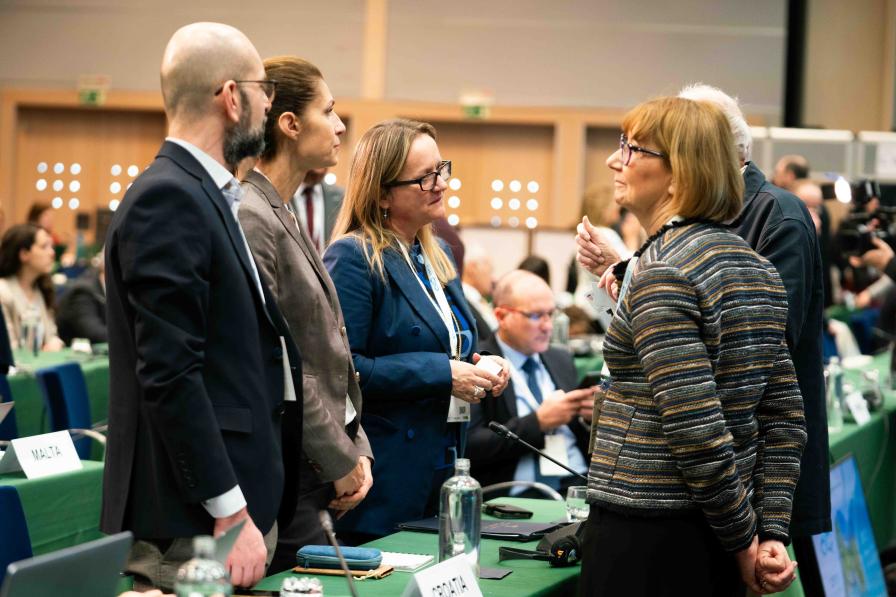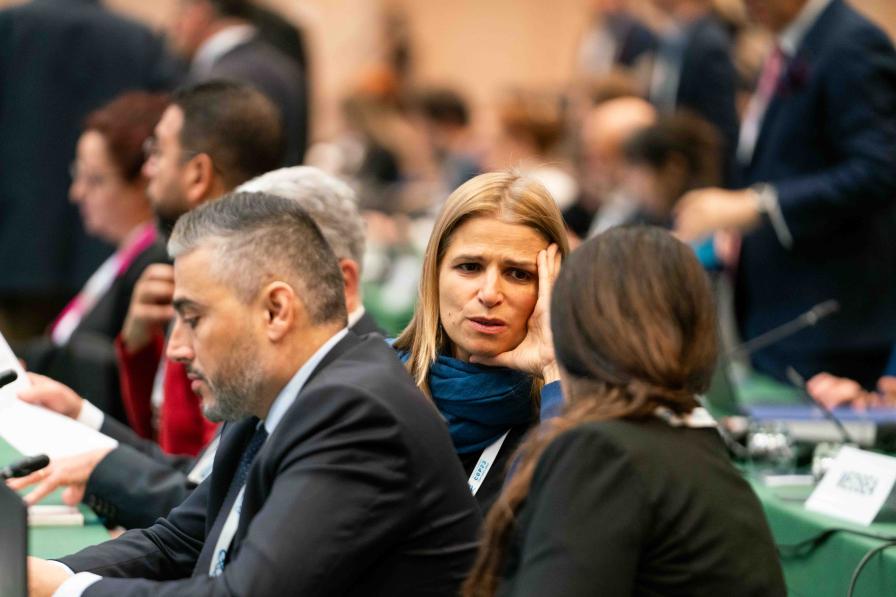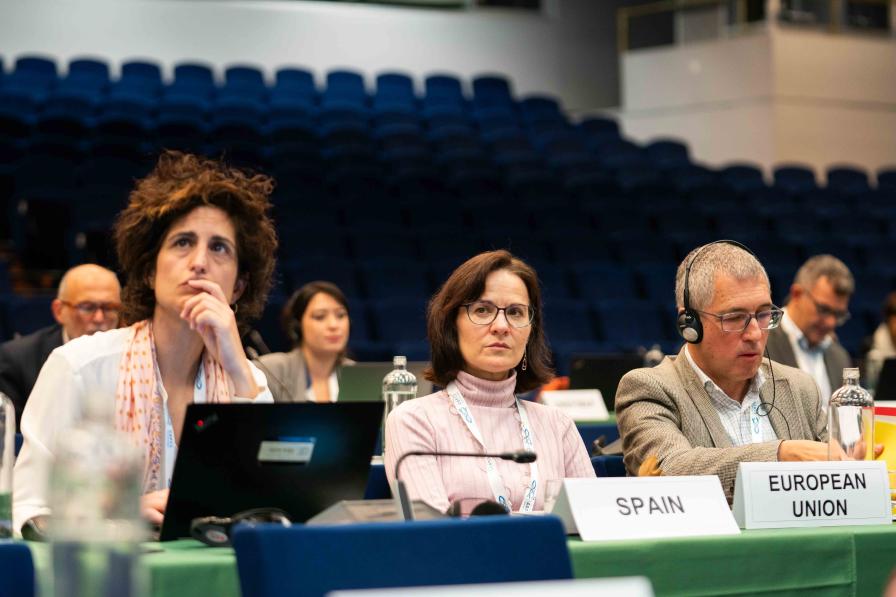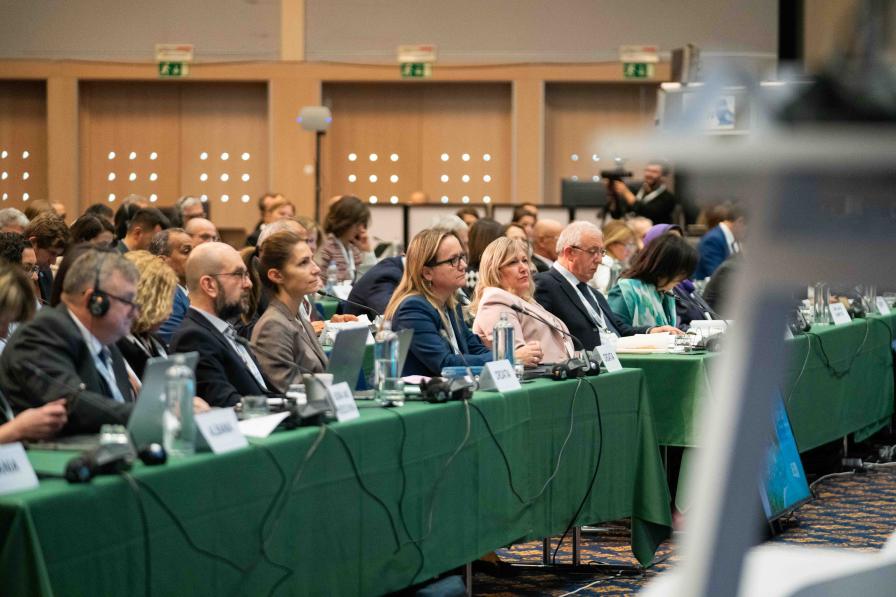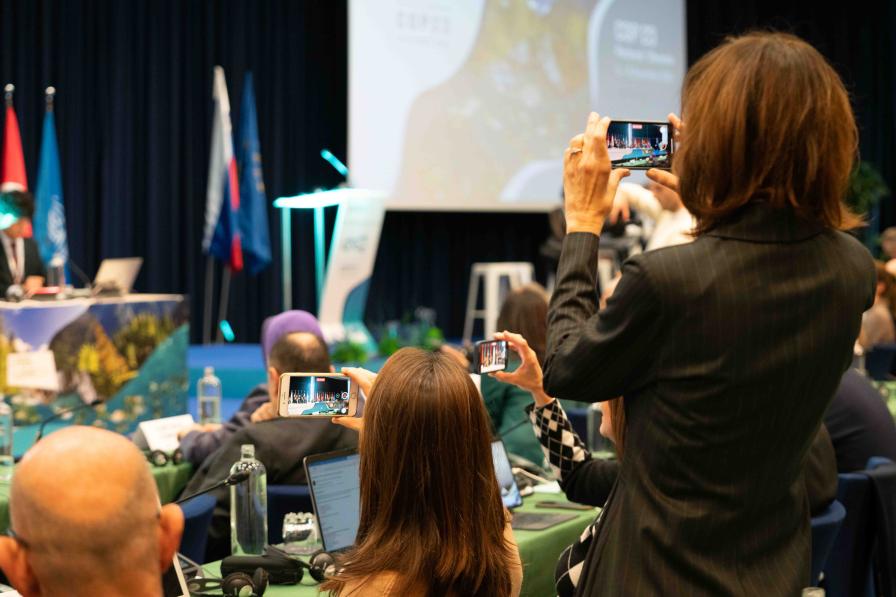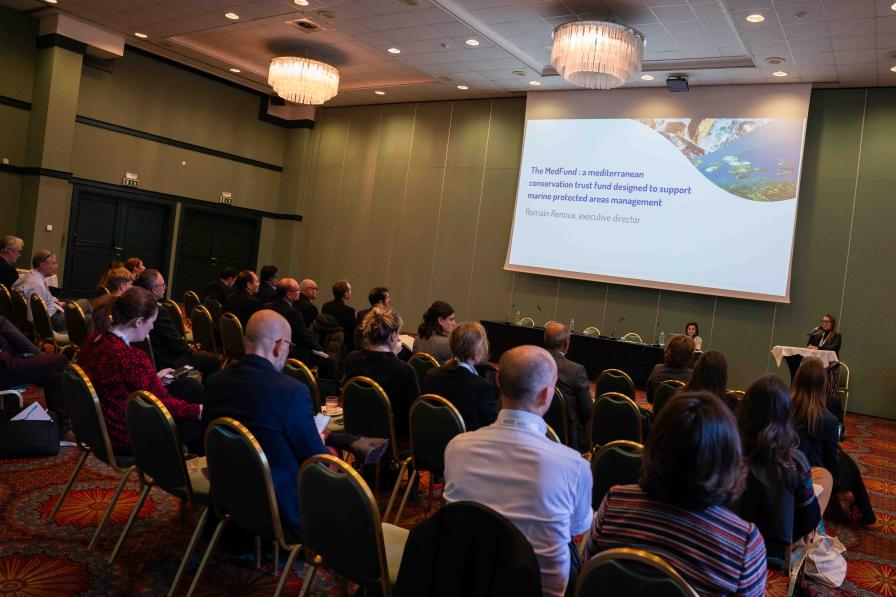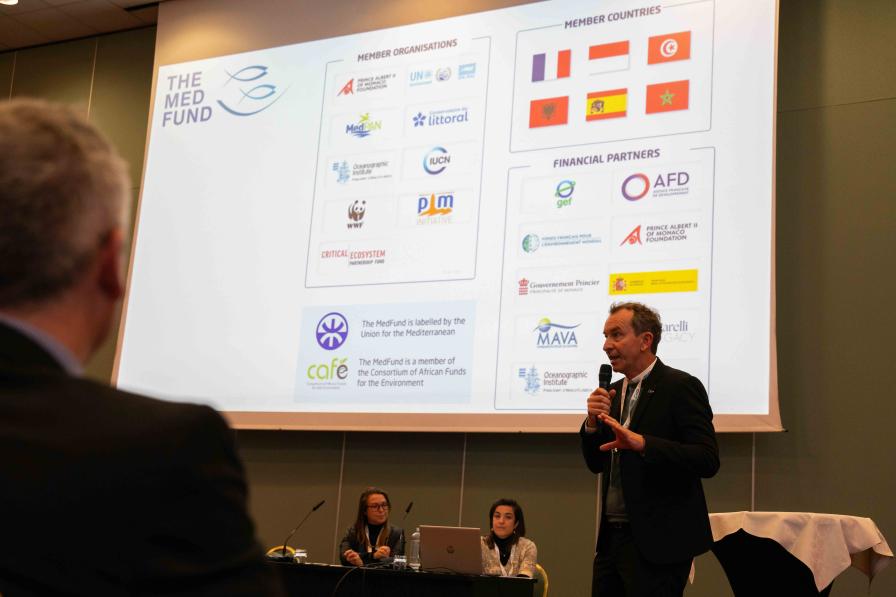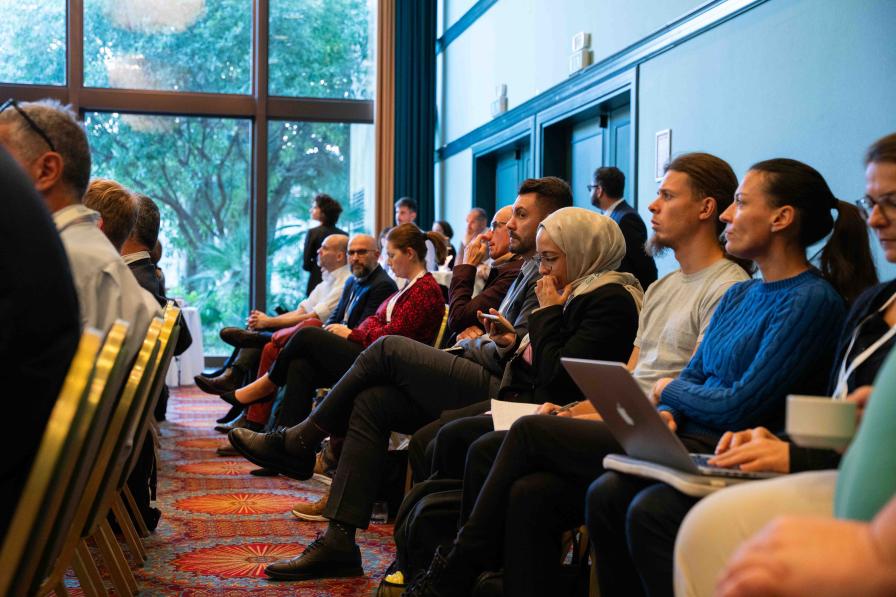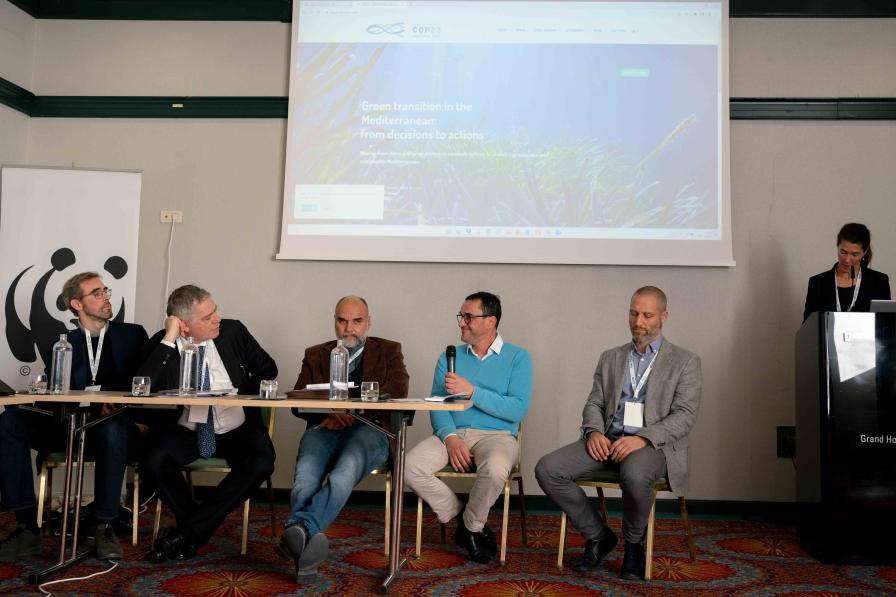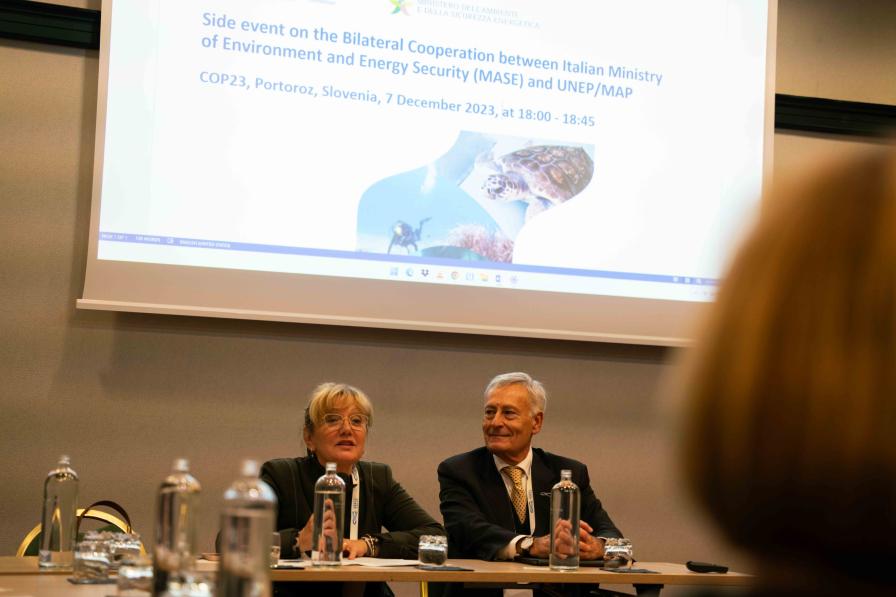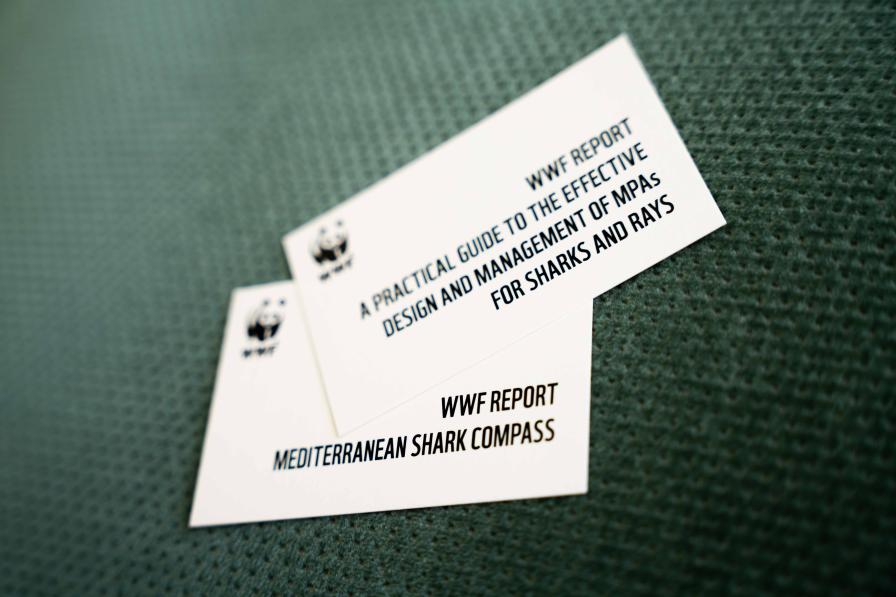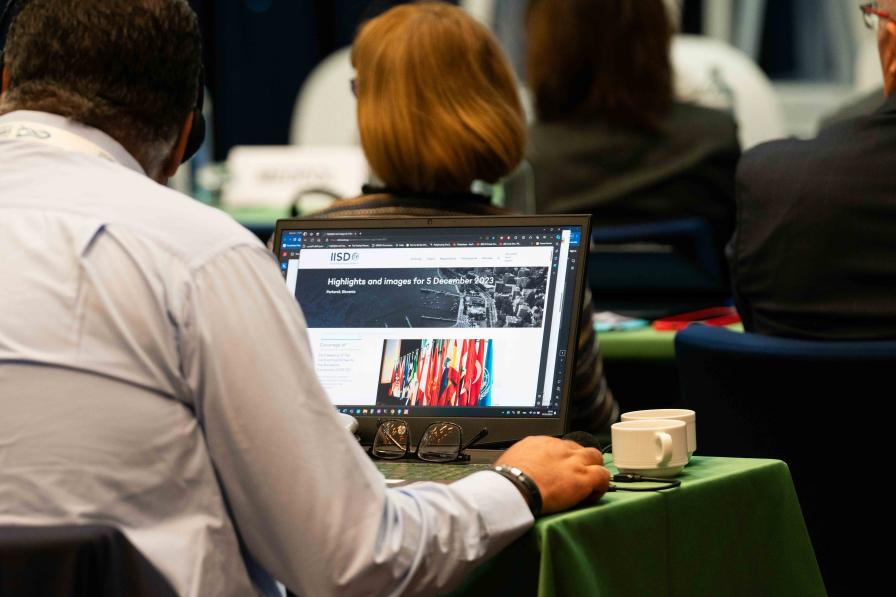Delegates gathered today in good spirits for the Ministerial Session of COP 23, as the low winter sun painted the Portorož coast with warm pastel colors.
The session opened with a video, prepared by host country Slovenia, that showcased successful examples of coastal management, carried out through regional cooperation. The video concluded “There is no green solution without blue wisdom.”
The day’s highlight was the adoption of the Portorož Ministerial Declaration, which had been discussed and finalized during the week. In this Declaration, the Barcelona Convention’s Contracting Parties commit, for instance, to:
- halt the degradation of marine and coastal biodiversity through the implementation of the Mediterranean region’s own post-2020 Biodiversity Framework;
- advance decarbonization;
- ensure the effective and timely implementation of the regional legally-binding measures adopted under the Land-Based Sources and Activities Protocol of the Barcelona Convention;
- address plastic pollution including through the promotion of circular approaches and the reduction of single-use plastics;
- make every effort to ensure that by 2030 at least 30% of coastal and marine areas are effectively conserved and managed; and
- involve youth in environmental issues and decision-making processes in an innovative manner.
In the morning session, Maša Kociper, Slovenia’s State Secretary at the Office of the Prime Minister, spoke on behalf of Alenka Bratušek, Minister of Natural Resources and Spatial Planning of Slovenia. Illustrating the impacts of climate change in her country, she recalled the catastrophic 2023 summer floods which caused widespread destruction, amounting to some 10 billion euros of damage. She shared her Minister’s encouragement: “Let us not be afraid of the scale of challenges.”
Elizabeth Maruma Mrema, UNEP Deputy Executive Director, said the Mediterranean Action Plan (MAP) is a shining example of how common challenges can spur collective action. Among its successes, she highlighted the Regional Plan on Marine Litter Management and the large marine protected areas recently established by Algeria, Libya. and Albania, stressing that “the solutions lie within reach.”
Robert Golob, Prime Minister of Slovenia, pointed to the many interests that converge in the Adriatic Sea, and praised the Barcelona Convention as a global example of how to address environmental and social challenges.
Tatjana Hema, UNEP/MAP – Barcelona Convention, said the “time has come” to take stock of acceleration pathways towards a greener economy in the Mediterranean region.
Delegates then heard a report on activities carried out in the framework of UNEP/MAP since COP 22, followed by a panel session on “Green transition in the Mediterranean: From decisions into actions.” In this panel, representatives from several organizations highlighted priorities, activities, and successes achieved. Students from a high school in Rome, Italy, shared their concerns and hopes for the future, underscoring the feeling of anxiety shared by a whole generation worldwide. They stressed the importance of having their voices heard.
In the afternoon, COP 23 heard statements from Parties and organizations, and witnessed the presentation of the Istanbul Environment Friendly City Award. This year’s Award went to the City of Genoa. A Memorandum of Understanding was signed by the Agreement on the Conservation of Cetaceans of the Black Sea, Mediterranean Sea, and contiguous Atlantic Area (ACCOBAMS) and UNEP/MAP.
Several side events were held throughout the day, on biodiversity and marine protected areas and on pollution, including marine litter. In the evening, women heads of delegation and other women delegates attended a women’s leadership event that including a dinner.
To receive free coverage of global environmental events delivered to your inbox, subscribe to the ENB Update Newsletter.
All ENB photos are free to use with attribution. For the Barcelona Convetion COP23, use: Photo by IISD/ENB | Mika Schroder
Ministerial Session
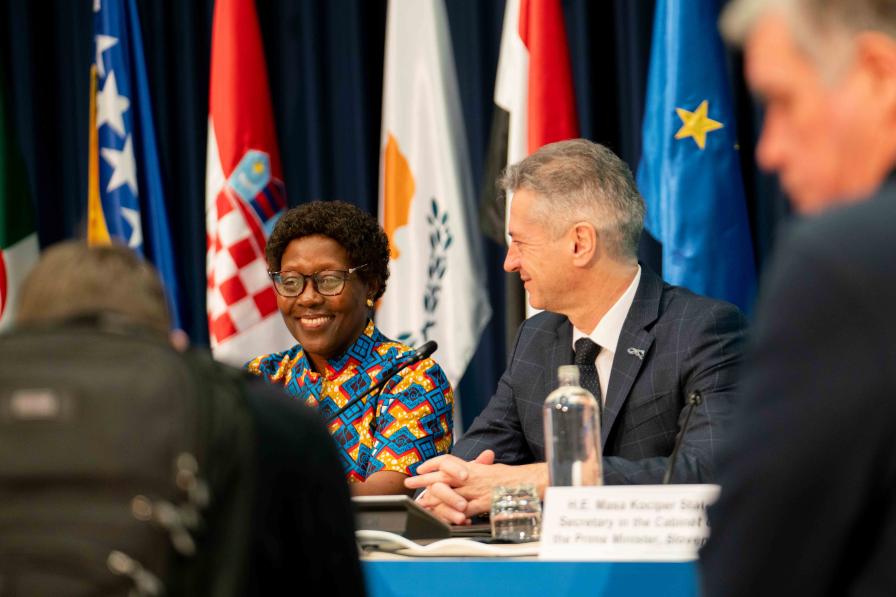
Elizabeth Maruma Mrema, UNEP Deputy Executive Director, and Robert Golob, Prime Minister of Slovenia

Lučka Kajfež Bogataj, University of Ljubljana, during the panel on Green Transition in the Mediterranean
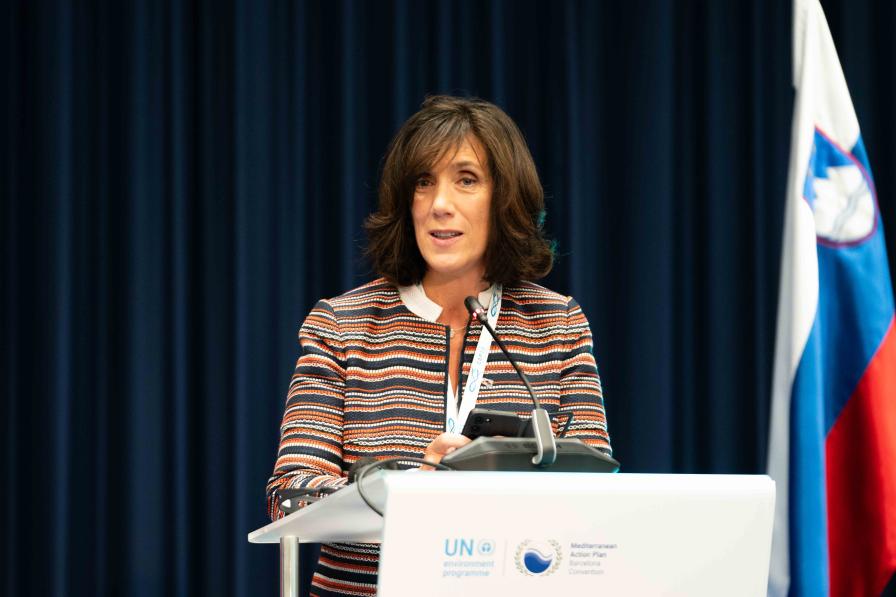
Susana Salvador, Agreement on the Conservation of Cetaceans of the Black Sea, Mediterranean Sea and contiguous Atlantis area (ACCOBAMS)
Side events
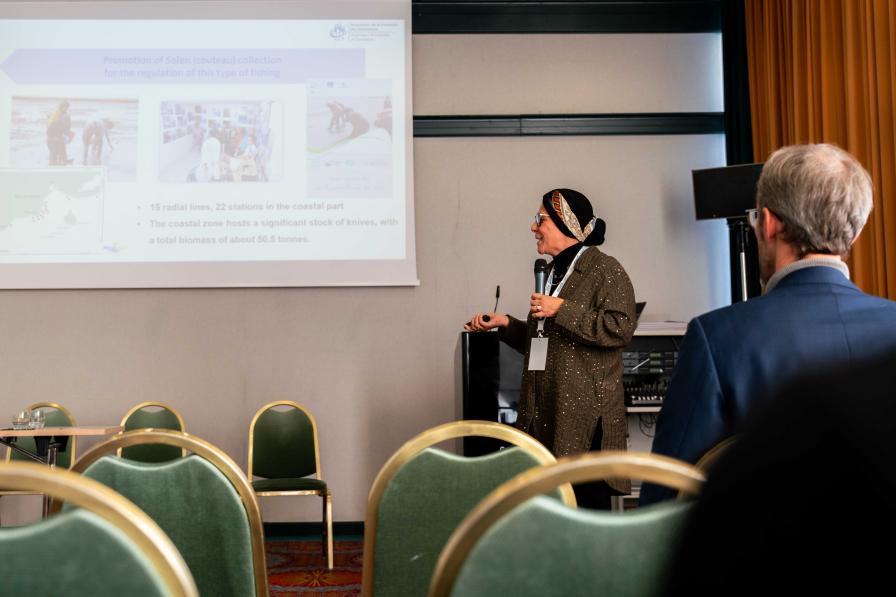
Sana Taktak, Association de Continuité des Générations (SCG), presenting during the side event ‘30 x 30 biodiversity target in the Mediterranean - time for action’

Side event 'Navigating Change- Progress and prospects in the Mediterranean's Plastic Pollution Battle'
